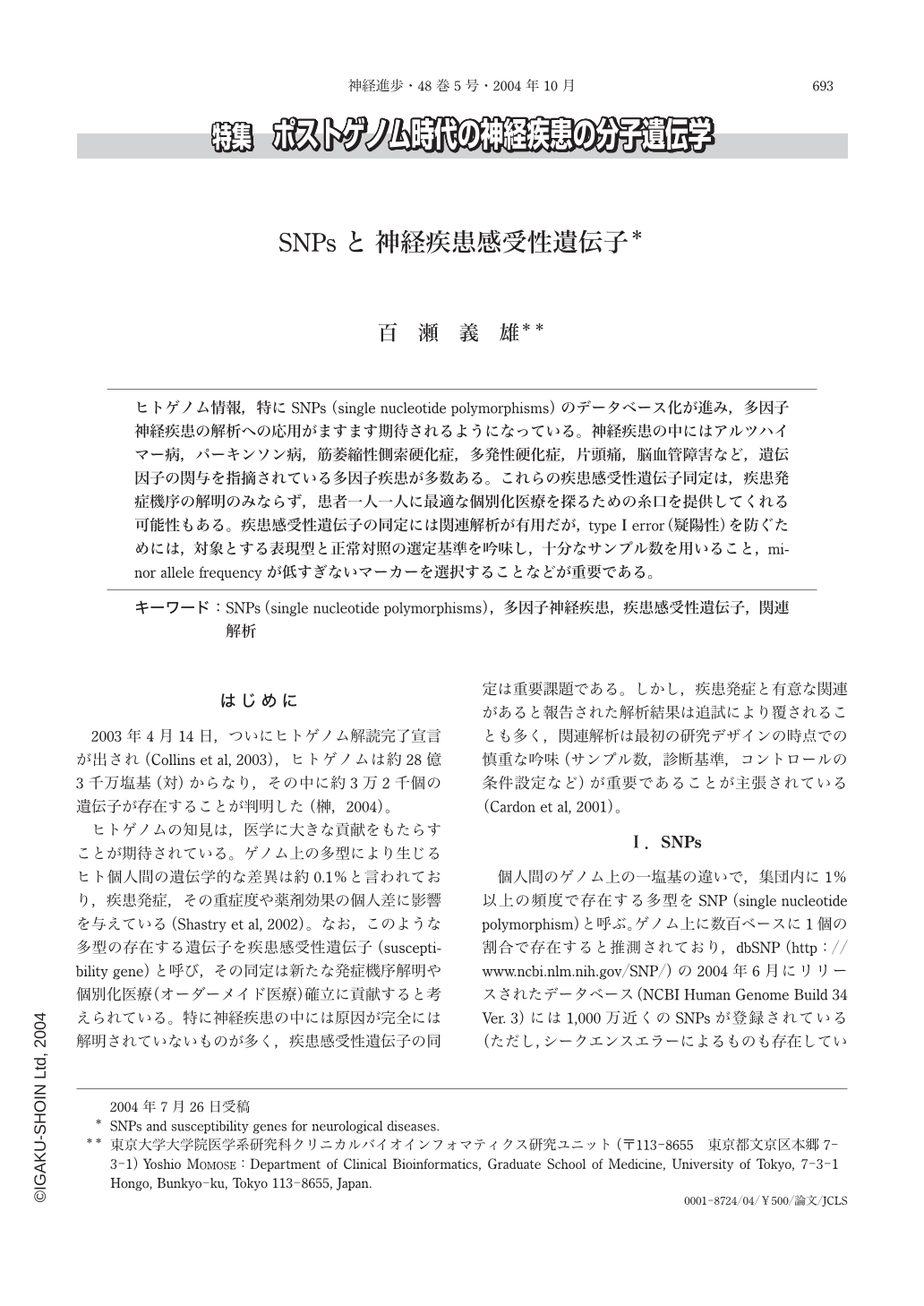Japanese
English
- 有料閲覧
- Abstract 文献概要
- 1ページ目 Look Inside
ヒトゲノム情報,特にSNPs(single nucleotide polymorphisms)のデータベース化が進み,多因子神経疾患の解析への応用がますます期待されるようになっている。神経疾患の中にはアルツハイマー病,パーキンソン病,筋萎縮性側索硬化症,多発性硬化症,片頭痛,脳血管障害など,遺伝因子の関与を指摘されている多因子疾患が多数ある。これらの疾患感受性遺伝子同定は,疾患発症機序の解明のみならず,患者一人一人に最適な個別化医療を探るための糸口を提供してくれる可能性もある。疾患感受性遺伝子の同定には関連解析が有用だが,typeⅠerror(疑陽性)を防ぐためには,対象とする表現型と正常対照の選定基準を吟味し,十分なサンプル数を用いること,minor allele frequencyが低すぎないマーカーを選択することなどが重要である。
The completion of a high-quality, comprehensive sequence of human genome was a landmark event. On those information, especially of SNPs(single nucleotide polymorphisms), it is expected to find susceptibility genes of multifactorial neurological diseases such as Alzheimer disease, Parkinson disease, amyotrophic lateral sclerosis, multiple sclerosis, migraine and stroke. And we could also establish personalized medicine of them by use of those newly-identified genetic factors. To refrain from making typeⅠerrors, it is important to perform association studies with adequate sample size, discrete phenotype definition, sensible choice of markers and so on.

Copyright © 2004, Igaku-Shoin Ltd. All rights reserved.


